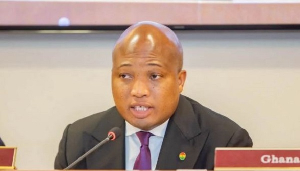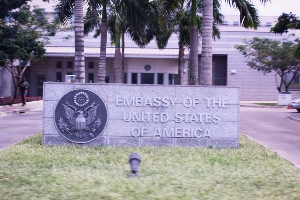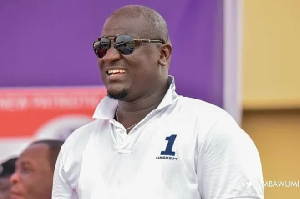A World Bank report released on August 14, 2012 has said the National Health Insurance Scheme (NHIS) could go bankrupt “as early as 2013”.
In the 192-page report titled ‘Health Financing in Ghana’ and prepared by World Bank researchers, George Schieber, Cheryl Cashin, Karima Saleh, and Rouselle Lavado stated: “With current expenditure and expansion plans, the NHIS is not financially viable. It is projected to be insolvent by as early as 2013.”
This is in tandem with concerns raised by critics of the scheme who said that the scheme managers were mismanaging it and that it needed divine intervention to salvage it from imminent collapse.
Bagbin Concerns
The Minister of Health, Alban Bagbin, has also expressed concern about the future of the NHIS, saying that the scheme was currently running at deficit.
Mr Bagbin, at the fourth Civil Society Organisation’s annual health forum, in September, in Accra said, “Since 2010, the NHIS has run deficits” and that “the stability of the scheme is of great concern to government”.
According to the World Bank report made available to DAILY GUIDE, the system had serious structural and operational inefficiencies that put it on a self-destruct trajectory.
In the World Bank’s estimation, the inefficiencies in Ghana’s health insurance system would erode the potential benefits that any resource injection would bring.
“For the NHIS to expand enrollment and become sustainable, more public resources will be needed. The system is too inefficient to absorb significant new resources; however, without major reforms, some of which lie outside the purview of the NHIS, it is difficult to argue for major increases in funding, particularly given Ghana’s fragile macroeonomic/fiscal situation,” explained the report.
The World Bank exposé is contrary to what government officials and officials from the Sylvester Mensah-led National Health Insurance Authority (NHIA) would like the general public to believe about the future of the health insurance scheme initiated by the Kufour-led New Patriotic Party (NPP) government in 2003, to eliminate the hitherto cash and carry system.
Mentally Unbalanced
Last Saturday, at the Ghana Medical Association (GMA) conference in Elmina in the Central region, the NHIA boss described critics of the scheme as “mentally unbalanced”.
He repeated it on Oman FM yesterday, claiming that the NHIS was on a strong footing.
Already, the inefficiencies and operational inconsistencies in the NHIS have left huge unpaid claims to health institutions that have provided health services to subscribers of the NHIS.
Consequently, the health sector is gradually slipping back to the cash and carry regime, as many health institutions refuse to render services to card-bearing members of the scheme.
Several private and public health institutions such as the SSNIT Hospital in Accra and the Cocoa Clinic in Accra have been cited for rejecting patients with health insurance cards.
Even the country’s premier teaching hospital, the Korle Bu Teaching Hospital, has also been cited. Korle Bu is reportedly rejecting NHIS patients by blocking their access to drugs.
Also, the nation’s only military hospital, the 37 Military Hospital, is also alleged to be turning down patients with NHIS cards.
Corroboration
Indeed, the World Bank report is not the first time that independent analysts have sounded alarms about the potential demise of the NHIS. In fact, several civil society groups have expressed their skepticism about the sustainability of the scheme, including popular think-thank IMANI Ghana which has been extremely vocal about the manner in which the NHIS is being run.
According to the World Bank report, the basic benefits package was heavily biased toward curative care and, contrary to widely held views, the poor coordination between the Ministry of Health and NHIA might actually be making healthcare unaffordable.
Keeping Up Appearance
Despite the overwhelming evidence of the NHIS’s imminent collapse, the Chief Executive Officer of the NHIA, Sylvester Mensah, has insisted that the system is running smoothly trumpeting the massive enrollment on the scheme.
The NHIS has reportedly enrolled about 22 million Ghanaians so far. The NDC claims the NHIS chalked a dramatic milestone between 2010 and 2012 when more than 12 million new subscribers where hooked on to the NHIS.
Hitherto, the system had struggled to sign on barely eight million members for six years, between 2004 and 2010.
According to both the NDC and the NHIA, the scheme would, from 2013, carry through the NDC’s campaign promise to run the system on a one-term premium regime.
This intention has been rubbished by the World Bank which said there is no scientific basis to prove the one-term premium is feasible.
“Premiums, taxes, and reinsurance payments for the NHIS and to DMHISs are not actuarially determined, and premiums for informal sector workers are low relative to their costs,” it said.
The Executive Director of IMANI Ghana, Franklin Cudjoe, cautioned the NDC government against the one-term premium, warning that that would in fact be the final nail in the coffin of the NHIS.
“It is possible but it would not make sense because it will collapse. I don’t know why anybody would want to run an insurance scheme and then say that he also wants to charge a single charge premium and then damn the consequences. I would fire the person immediately because it looks to me that that person doesn’t even understand that his own insurance matters when it comes to a whole insurance entity,” he was widely quoted in the media in August.
“If bureaucrats have been put in charge of a very vital institution like the National Health Scheme, which already has challenges, the last thing you want to do is to say that you want to impose a single time premium payment,” he sneered.
General News of Tuesday, 13 November 2012
Source: Daily Guide
NHIS Collapsing, World Bank says













